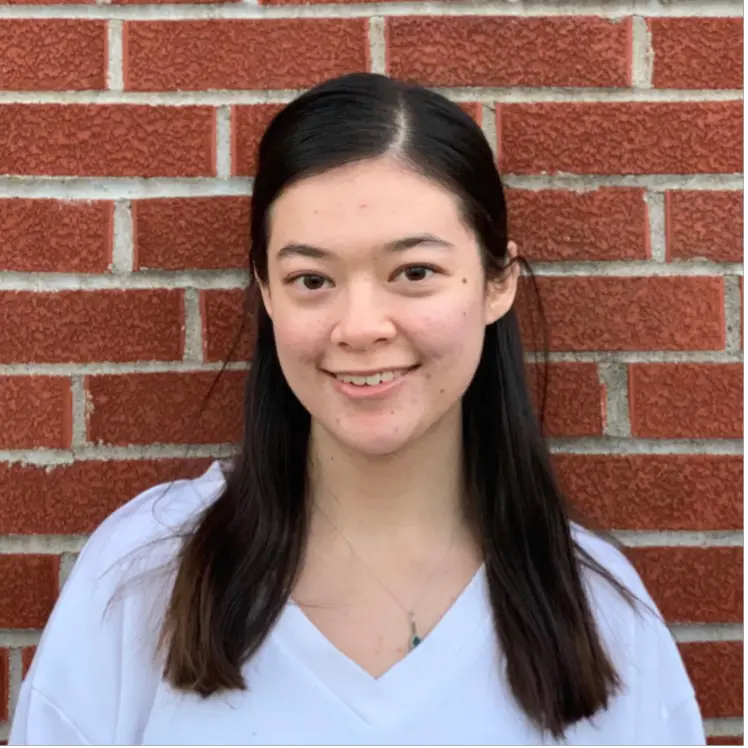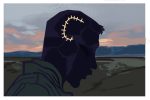The film “Nomadland,” directed and written by Chloé Zhao, premiered at the Venice Film Festival and attracted international recognition. It won the Golden Lion at the Venice Film Festival and the People’s Choice Award at the Toronto International Film Festival, making it the first to have won top prizes in both Venice and Toronto.
The film depicts the life of Fern, played by Frances McDormand, a woman who becomes a nomad after her life is torn away from her. The town she lived in, Empire, Nevada, was closed down due to real estate foreclosure and an economic recession. Soon after, her husband, who loved Empire and the life they led there, died. Left completely alone and without anywhere to live, Fern decides to live in a van and work as a seasonal packer at an Amazon fulfillment center. She makes friends with a group of other nomads, sometimes living with them in makeshift communities, and sometimes hitting the road and traversing the American landscape.
“Nomadland” is based upon the non-fiction book “Nomadland: Surviving America in the Twenty-First Century” by journalist Jessica Bruder. The movie features real nomads — three of which were also interviewed for the book — including Charlene Swankie, Bob Wells and Linda May. May is the main protagonist of Bruder’s book, and plays Fern’s best friend in the movie. Bruder’s book focuses on the economic upheaval caused by the Great Recession that drove people such as May out onto the road, living in vans, while searching for jobs.
The characters in this movie are characters we don’t normally see on screen: middle-aged and older, homeless, working menial jobs to survive. Many of these characters have lost their former way of making a living and have little to no financial safety net. They come together in Wells’ makeshift nomad communities and travel around the underside of America, seeing things that many people don’t normally see and living invisible lives. They know the healing beauty of nature and the terrifying freedom that comes from not having anything to ground them.
One of the most masterful aspects of the film is its lack of judgment and sensationalism. Fern’s story is not melodramatized when it certainly could have been. Her husband died and her life was ripped out from beneath her; in another movie, by the end, she would have done something to be happy again, fallen in love, overcome the pain of her past or experienced a moving reconciliation.
Instead, she meets different people, forms interesting relationships without getting tied to anyone, sees beautiful things, hears stories and at the end of the movie goes back to Empire and walks out the backdoor of her house to a view of the mountains in the distance. She may have come to terms with things, and she may not have; real life is always more complex than that. “Nomadland” manages to capture such complexities simply by choosing to observe and let them be, traversing over characters and events like Fern traverses over the landscape. To draw sharp conclusions from any of it would be to diminish the largeness of what the film has captured. Full of space and silence, it touches upon that thing inside us all, connected to nature, a feeling for which there are no words.
The visual beauty of “Nomadland” is also obvious to see. Shot throughout the United States, there are long shots of the horizon at magic hour when light is softer and redder, a slow pan through the community of van dwellers while Fern takes a walk and a man rides a bicycle nearby, looping in and out of the frame as a moving piano score plays. She lies face up in a clear stream, drifting slowly along with the current, watches a buffalo amble through green, light-filled scenery and stands upon maze-like rock formations in the Badlands. The whole film has a natural, organic quality to it that blends Fern’s interactions and daily activities effortlessly with the force of nature and the setting around her.
While the film documents the lives of people who have lost a great deal and have dreams that have been left unfulfilled, it does not fall into despair. Fern does not appeal for sympathy or demand understanding. There is no entitlement; while some characters tell stories of pain or grief, they don’t ever express bitterness or commiserate with one other. They support each other, in a way people with houses in a neighborhood rarely do, and they feel immense compassion and respect for each other without conveying a desire for pity. The way things are, are the way things are. The nomads are able to acknowledge their own human impermanence while also feeling gratitude for the beauty around them.
“The world is trying to divide us,” said director Zhao in an interview with IndieWire in 2020. “In the past several months, we’ve all gone through a version of what Fern has felt — this feeling of great loss to a life that you used to have. It’s just this void you feel, the need to go back to normal, which leads to acceptance and how you can grow to ultimately feel OK with your place in the world. That’s what a lot of people need right now.”
“Nomadland” won Zhao best director at the 2021 Golden Globes, making the filmmaker, who was born in Beijing, the first Asian woman ever to win that prize. The film also won best drama. In her acceptance speech at the virtual awards ceremony, she quoted what Wells told her about compassion, saying: “Compassion is the breakdown of all barriers between us. A heart-to-heart bonding. Your pain is my pain. It’s mingled and shared between us.”
“Now this is why I fell in love with making movies and telling stories,” she continued. “Because it gives us a chance to laugh and cry together. And it gives us a chance to learn from each other and have more compassion for each other.”
Zhao, whose two previous films, “Songs My Brothers Taught Me” and “The Rider,” were also critically acclaimed, will be making the leap from indie to blockbuster filmmaking with the Marvel Cinematic Universe superhero film “Eternals,” scheduled for release in November 2021.

















